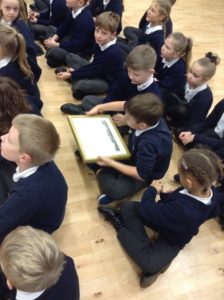Our Living and Learning theme this half-term is Identity. Pupils will learn about what makes themselves and others special, valuing the similarities and differences between themselves and others and what is meant by community. This will be taught through our Living and Learning sessions and two focused weeks.
Anti-bullying week (11 November) ‘Change starts with us’
My Community themed week (25 November)
Our new school charity will be chosen as part of the My Community themed week. Every year, we nominate a new charity to support. This year, we have been supporting Cancer Research. We decide this on the basis of a Talk Time homework, and then school councillors make the final decision.
Our Living and Learning long term plan details the learning for each year group across the year and you can keep up to date with our weekly Living and Learning statements on the parent noticeboard in the playground and also on the school calendar. We will begin and end this half term with a focus on manners.
I apologise when I need to.
I say please and thank you.





